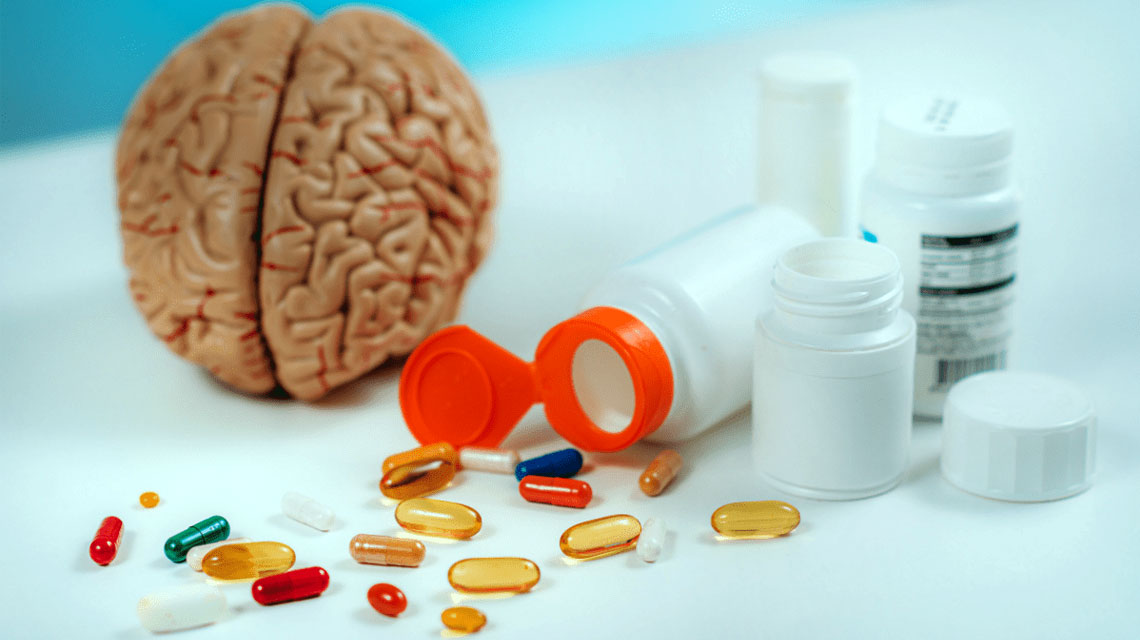Smart Drugs (Nootropics) List, Uses, Side Effects
By Jason GrayJan 14, 20212231

Smart drugs, aka nootropics, are natural, synthetic, or prescription substances that boost cognitive function by improving the secretion of certain brain chemicals or neurotransmitters.
Natural nootropics, which are often used in alternative medicine, include caffeine, L-Theanine, Rhodiola Rosea, Panax Ginseng, among others. Synthetic or prescription smart drugs include modafinil, armodafinil, Adderall, Ritalin, among others, which have the strongest effects on mental health. Other synthetic smart drugs like piracetam are widely available, but there is no enough research on their efficacy in healthy individuals.
The use of smart drugs or nootropics is on the rise but experts say that there is a need for more research in order to better understand their effectiveness, safety, and benefits.
Nootropics are a class of substances that are known to boost your brain performance. They are also called pharmaceutical cognition enhancers (PCEs) or memory-enhancing substances. Prescription smart drugs have strong stimulant effects and are advised to improve the symptoms of neurological conditions such as narcolepsy, attention deficit hyperactivity disorder (ADHD), or Alzheimer’s disease.
OTC or nonprescription smart drugs can also enhance your brain performance, focus, motivation, attention, memory, etc. However, they do not treat neurological conditions that affect mental functions. This article looks at the list of a few smart drugs, including their uses and side effects.
Smart Drugs or Nootropics List, Uses and Side Effects
People may take a smart drug to treat narcolepsy, ADHD, or dementia under the supervision of a medical professional. Usually, prescription smart drugs are a type of stimulant, such as amphetamine, modafinil, armodafinil, among others.
Modafinil (Provigil) or armodafinil (Nuvigil) is often advised to treat excessive sleepiness caused by narcolepsy, obstructive sleep apnea, or shift work sleep disorder. Amphetamines (Adderall) treats ADHD, methylphenidate (Ritalin) manages symptoms of narcolepsy and ADHD.
Prescription smart drugs carry risks of side effects so people should only take them as advised by their doctor. Common side effects of prescription smart drugs include high blood pressure, increased heart rate, insomnia, trouble with vision, or addiction.
“Nootropic” is a term that is also used for natural or synthetic supplements that can boost your cognitive or mental performance. Caffeine, L-Theanine, omega-3 fatty acids, Rhodiola Rosea, Panax Ginseng, and racetams are a few commonly used OTC smart drugs.
People often consume caffeine via coffee or tea because of their natural stimulant effects. Having a cup of coffee or tea could boost your mental focus. However, excessive intake of caffeine may prove risky. L-theanine is an amino acid that you may found in black or green teas. Studies have found that omega-3 fatty acids help slow down cognitive decline.
Other natural nootropics include Ginkgo biloba, Panax ginseng, creatine, and Rhodiola. Ginkgo biloba leaves are available as herbal supplements. Panax ginseng is a perennial herb that grows in China and some parts of Siberia. Studies have found that Panax ginseng may help prevent Alzheimer’s disease and Parkinson’s disease. Rhodiola has been found to help improve cognitive ability.
Creatine is another amino acid that is available in supplements. It is popular among athletes and bodybuilders because it boosts exercise performance. Creatine has also been found to help with mental stability.
Racetams are synthetic nootropics that can improve the secretion of neurotransmitters in the brain. Some of the common nootropic racetams include piracetam, pramiracetam, phenylpiracetam, and aniracetam. Animal studies have shown that piracetam has neuroprotective effects on the brain.
Do these smart drugs work?
Some studies have shown that some nootropics can affect the brain in certain ways. However, there is not enough evidence from larger, controlled studies. Due to the lack of research, healthcare professionals cannot say with surety that OTC or prescription nootropics improve brain or cognitive function. Some experts are even skeptical about their safety. For instance, one study on smart drugs found that there is no strong evidence to suggest that they are safe or effective for healthy individuals.
Many medical professionals agree that it is better to eat healthily, get adequate sleep, exercise regularly, and manage stress in order to boost your brain function. For some people who want to improve their cognitive function, smart drugs or nootropics may help. People who are interested in trying OTC or prescription nootropics should seek medical help beforehand.
Word of Safety
As with many supplements or medications, prescription or OTC smart drugs do come with a risk of side effects and drug interactions. One should check with their physician about the safety of nootropics before taking any. Prescription smart drugs must only be used under the supervision of a medical professional. Although OTC nootropics are available without a prescription, it is essential to talk with a doctor before using any.
Please note that some OTC smart drugs or brain health supplements may not contain some undeclared ingredients so check whether the FDA has recalled the product before buying. It is also important to buy smart drugs or nootropic supplements from registered, reputable and regulated companies. A prescription is required for some nootropics, such as Provigil, Nuvigil, Adderall, and Ritalin. OTC nootropics are easily available in supermarkets and drugstores.
Remember, not all of smart drugs are recommended by doctors due to the risk of drug interact action. So ,always talk with a doctor before trying any OTC or prescription nootropic.